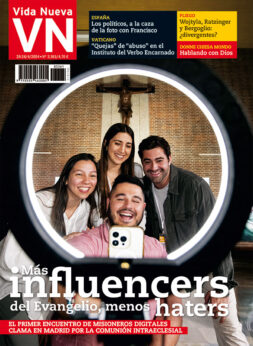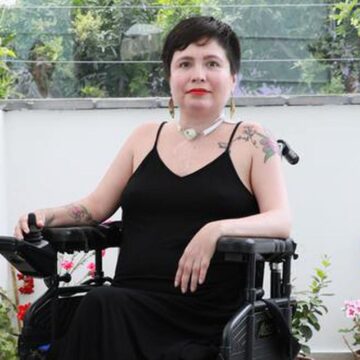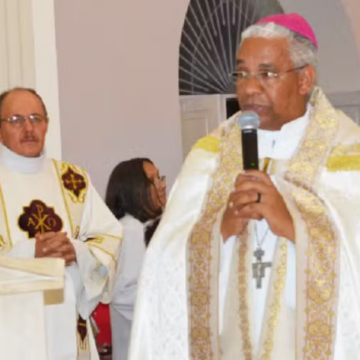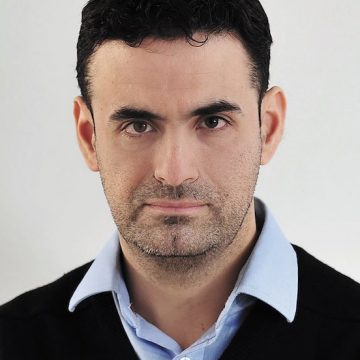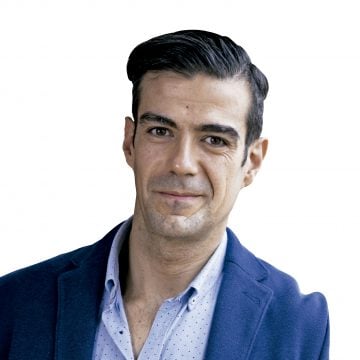Testimonio del matrimonio estadounidense de Jeff y Alice Heinzen (diócesis de La Crosse) ante el Sínodo de los Obispos.
 “El matrimonio, un viaje por la vida del amor auténtico”
“El matrimonio, un viaje por la vida del amor auténtico”
Mi marido y yo nos hemos preguntado esta pregunta: “¿Cómo vivieron nuestros padres sus vidas como un matrimonio que nos sirvió de modelo para ser hoy un matrimonio católico lleno de fe?”
En nuestra reflexión realizamos que el testimonio de nuestros padres, su revelación de las acciones del plan de Dios hacia el matrimonio y la vida familiar. Tengo un grato recuerdo de participación en la procesión del Corpus Christi en mi barrio y mi padre que salía pronto del trabajo para asistir diariamente a Misa. Duringthe el mes de mayo, recuerdo a nuestras familias rezando el rosario. Recuerdo cómo mis padres fácilmente se daban besos el uno al otro. Nos arrodillamos al lado de nuestra cama noche en el rezo para pedir protección y bendiciones sobre nuestra familia. Cada domingo, asistíamos a la Misa como una familia, al salir de la iglesia íbamos a visitar a familiares. A todo esto, podemos añadir que nuestras madres nos recordó siempre el amar a nuestros hermanos, usar nuestros mejores modales con otros, y dar nuestros peniques para ayudar aquellos menos afortunado. Nuestras casas eran escuelas de amor y de virtud y nuestros padres eran los educadores primarios.
Nuestros padres llevaron al testimonio fiel de la alegría y la belleza del plan de Dios para el amor y la vida. Lamentablemente, no sólo en nuestra evaluación de cultura corriente, pero también debido a nuestra experiencia pastoral, sabemos que muchos jóvenes no ven al testigo de amor matrimonial que experimentamos. Muchos de los jóvenes crecen en casas rotas por el divorcio o sin la experiencia de padres casados debido a las relaciones fuera del matrimonio. Nos hemos enterado, como algunos científicos sociales han descrito, que la edad en la que se forma la estructura familiar disminuye. Esto es más que una crisis.
To quote Saint John Paul II, “[T]he role of parents as educators is so decisive that scarcely anything can compensate for their failure in it.” Sociological research testifies to this problem and information in the Instrumentum Laborisconfirms it. Children raised without the blessing of married parents, who have created a home animated by love and faith,will likely struggle to trust in God and their neighbors. How can they create life-long marriages?
Our diocese in the United States is not unlike those around the world. We have seen the number of marriages decline each year and the rate of cohabitation increase. We have seen a steady drop in the number of baptisms. We have watched our youth fall prey to the confusion of a hedonistic culture. We know countless divorced adults who have joined other faith communities because they do not feel welcomed in the Catholic Church. And, our hearts ache for single parents who struggle to care for their children. Like you, we strive to find simpler, more effective ways,to better share the blessings of God’s plan for marriage and family.
The Instrumentum documents pastoral programs that attempt to address the negative issues impacting marriage and family life. Sadly, these efforts are not meeting the magnitude of the cultural challenges facing us today. We must developmore robust and creative methods to share the fundamental truth that marriage is a divine gift from God, rather than merely a man-made institution. This will require us to examine the methods by which we teach our children about the nature of human sexuality and the vocation of marriage. When speaking of the call by God to serve, marriage should be included in all programs designed to explore vocations. And, it should compel us to ask how we provide for the aftercare of marriage that can help couples deepen their relationship. We therefore see the issue before us not as a crisis of truth, but rather as a crisis of methodology. How do we as a Church, effectively share what we know to be truein practical, simple and convincing ways, so that all men and women are challenged and supported tolive life-long marriages and build homes that reflect the domestic Church?
En toda nuestra planificación de pastoral, debemos recordar que “nada es imposible con Dios” (Lc 1, 37). Las soluciones sobre la crisis pueden ser encontradas. Este Sínodo tiene la capacidad de proporcionar la ayuda a maridos, mujeres y familias. Déjenos abrir nuestras mentes y corazones al Espíritu Santo de modo que la voluntad de Dios pueda ser lograda. Gracias.
Jeff y Alice Heinzen
El Vaticano, Roma
7 de octubre de 2014


